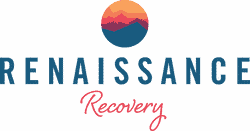Detox Programs in Orange County
Drug and Alcohol Detox Treatments
Before entering into an addiction treatment program or therapy, individuals must be free from physical dependence on drugs and alcohol. A detox program prepares those suffering from addiction symptoms for rehab.
While Renaissance Recovery does not offer detox services, we partner with other treatment programs to ensure that you can find the help you need and help you find the perfect drug detox facility in California for your situation.

By: Renaissance Recovery
Clinically Reviewed by: Diana Vo, LMFT
Last Updated:
04/19/2024
What Is a Detox Program?
A detox program at a licensed facility provides supervised detox from drugs and alcohol. During a medical detox, clients will be medically monitored as they go through addiction withdrawal.
Detox brings differing levels of discomfort and pain. While attending a detox center in Orange County, CA, these discomforts are monitored and managed. In some cases, clients will deal with severe withdrawal symptoms or complications like delirium tremens from alcohol abuse.
A detox program assists with the following:
- Safely and comfortably overcoming dangerous withdrawal symptoms
- Encourages ongoing substance abuse treatment
Following detox, individuals will start to think more clearly and begin healing.
Table of Contents
Dangers of Detox at Home
It can be tempting to use natural remedies or a cold turkey approach to quitting drug and alcohol use. But quitting is not simply a matter of willpower. Addiction is a disease that needs proper treatment by professionals. There are many dangers individuals can run into when detoxing at home.
Detox from Withdrawal Symptoms
When considering detox at home, it is important to consider the dangers of withdrawal symptoms. Each person experiences varying degrees of withdrawal depending on which substance is in their system, how long the substance was abused, and any pre-existing medical issues.
Withdrawal symptoms may include:
- Mood swings and symptoms of mental health disorders
- Trouble sleeping too little or too much
- Clammy skin
- Rapid heart rate
- Nausea and vomiting
- Shakiness or feelings of weakness
The above symptoms are usually the more mild ones that occur. However, more severe symptoms include:
- Fever
- Hallucinations
- Confusion
- Seizures
- Delirium tremens (from alcohol detox)
Mild to moderate withdrawal symptoms can be lessened and medically managed at a certified drug and alcohol detox center. At some treatment centers, severe withdrawal symptoms get immediate attention and can be mitigated with medication.
Drug and Alcohol Relapse
Initial relapse during detox at home is exponentially more likely. Old habits don’t disappear once detox starts. Often, there are intense cravings during this process.
Relapse from at-home detox generally occurs because of the following:
- Reduce withdrawal symptoms
- Satisfy cravings
- Experiencing triggers to use
- Self-medicating a mental health disorder
- Lack of support network
The relapse dangers of detox at home can result in death, specifically during alcohol and benzo detox. Tolerance levels decrease during detox and if the same level of substance abuse occurs, it can result in an overdose.
Detox at home is not worth the dangers of complications or relapse. A professional detox program keeps you safe and more comfortable and will transition clients into continuing substance abuse treatment and addiction therapy programs.
Finding a Southern California Detox
Whether you are looking in Orange County or for a Huntington Beach detox, the center should hold certifications and be accredited. One of the most important of which is the Gold Seal of Approval from the Joint Commission. You should ensure that whatever detox center or substance abuse treatment program you are looking into has this.
Finding a detox program in California can be difficult if you don’t know exactly what you are looking for. Luckily, our team can help you. Please give us a call today to learn more.
What to Do After Your Detox Program
After a detox program is completed, outpatient or residential treatment programs begin depending on the situation. Detox alone doesn’t help individuals recover from the psychological, social, and behavioral issues caused by addiction. This is where continued care comes in.
After detox, there are many levels of care, including:
- Inpatient rehab
- Partial hospitalization program (PHP)
- Intensive outpatient program (IOP)
- Outpatient treatment
- Alumni and community programs
Drug and Alcohol Detox Covered by Insurance
If you are looking for an alcohol and drug detox covered by insurance, whether it is Aetna, Beacon, BCBS, or something else, our team at Renaissance Recovery works with private insurance programs to make treatment as affordable and accessible as possible.
Following a drug or alcohol detox, it is highly recommended clients go to a treatment program like Renaissance Recovery’s Southern California outpatient treatment center, to ensure that they are working to fight back against their addiction and establish long-term sobriety.
Continue Addiction Treatment at Renaissance Recovery
Find help after detox at Renaissance Recovery. We provide specialized outpatient programs, including:
- Alcohol addiction treatment
- Heroin addiction treatment
- Dual diagnosis treatment
- Trauma counseling
- Experiential therapy programs
Contact Renaissance Recovery today by calling our team at 866.330.9449 to learn more about the drug and alcohol detox process and how to start your recovery.
Rehabilitation can put an end to addiction
Call and ask the facility directly or call your own provider to determine if your insurance covers the treatment.

